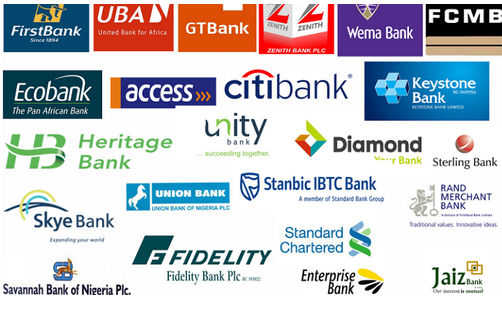By Emeka Madu
Open banking has become a major matter of contention across the African continent, with investors and entrepreneurs betting on the tremendous opportunities within this budding space. Open banking means providing third-party financial providers access to key financial data held by banks and other non-bank institutions through data aggregation and APIs. The aim is to enable easier account networking and data access across multiple financial institutions for use and benefit by financial institutions, third-party providers, and consumers.
Open banking in Europe and US
Europe is the leading continent in adopting and using open banking, spurred by robust ecosystems and well-defined regulatory mandates. Open banking in Europe is no longer about data-related technologies but about leveraging data and APIs to facilitate friction-free, secure payments with instant settling times. Notable benefits that have been seen from open banking in Europe include:
• Enhanced financial service offerings by leveraging open banking APIs
• Faster and smoother transactions for customers
• Increased digital revenue through enhanced customer engagement
• Increased transaction security and safety
In the US, there is insufficient standardisation and regulation on financial data, making it harder to establish the flexible, data-rich, and highly beneficial open banking systems available in Europe. Nevertheless, despite lacking a nationwide open banking system or framework, the US has still embraced open banking to offer better customisation of financial products. Other key benefits of open banking in the US include:
• More convenient and faster payment methods
• Better personalisation and control for consumers
• Automation
• Better targeting for businesses
Other countries across the world are also steadily adopting market-driven or regulatory-driven open banking solutions with varying objectives and benefits. Overall, banks and financial institutions must recognise that placing customers in full control of their financial data will be a regulatory and commercial imperative going forward.
Open banking benefits in Africa
Banks and regulators in a few African countries have begun to explore the possibility of sharing customer and financial data with various fintech upstarts. The increasing open banking adoption across the continent will have massive effects, just like the mobile payment revolution a few years ago. All the benefits of open banking, from faster payment processing to financial product customisation, are features that a significant, diverse pool of consumers needs in Africa. In addition, the large size and diversity of the underbanked and unbanked African marketplace offer a prime environment for new fintech innovations.
How Open banking can drive financial inclusion in AfricaAfrica’s banking systems have a high exclusion rate due to several factors. These include high costs, limited credit systems, lower financial literacy, and mistrust of traditional financial institutions, among other factors. Open banking systems can help improve access to finance for everyone across the continent by addressing all those limitations. For instance, digital finance offers better accessibility, lower costs, branchless operations, the ability to fight prejudice, and comprehensive customer data for better credit rating and access to loans for consumers and SMEs.
Why banks should not feel threatened with open banking</h2>
Banks should not feel threatened about open banking to the extent of viewing third-party fintech firms as competitors. They must shift their mindset and see fintech companies as key enablers that will help them to easily find and get into business with a more diverse clientele. For example, loan companies can connect to the banks to share customer data, thus reducing the default rate, and the bank also earns by charging a small access fee. That way, more SMEs and consumers will have access to loans, which results in wealth creation. Additionally, more people will be more willing to open new bank accounts, thus creating a beneficial cyclic effect.
Banks can also earn by allowing third-party providers to aggregate user data to help clients to manage their finances better. Banks and third-party vendors can earn significant amounts by providing such services. Open access to financial data can also increase operational efficiency and enhance customer experience by promoting more transparent and faster interactions.
The rich data source enabled through open banking will help providers accurately assess the customer’s creditworthiness and create a fitting, cost-effective payment plan. Ultimately, buyers will get better product options that save them money and experience greater user convenience when comparing and switching accounts between different providers. Open banking can also help insurance firms in a massive way, including through:
• More customised insurance products through the enhanced profiling of customer data
• Better customer onboarding processes through the use of validated user information
• Improved collection of insurance premiums through a straightforward, direct debit API connection to the banks
• Better consumer dialogues through proactive data-based advice and targeted marketing
Leveraging customer data can help insurance firms to minimise risk by quickly identifying fraud, determining client legitimacy, and ensuring compliance with industry regulations.
Conclusion
Even though open banking is relatively new and has not been fully adopted across the world, it has a great potential of transforming the entire African financial ecosystem, from the banks and third-party providers to the consumers. It will improve convenience, transaction cost, and customisation and ensure effective financial inclusion of Africans across the continent. Banks and regulators should not feel threatened by open banking; instead, they should innovate and find ways to implement it as early as possible. Better quality financial products, access to new markets, greater customer retention, and high user satisfaction guaranteed by open banking in Africa are worth the initiative and effort.
*Emeka Madu is business development and transformation expert with almost 2 decades of experience working for some of the largest multinational firms globally and has worked for the likes of MTN, Ria Financials, IDT and Paxful overseeing the market expansion and growth plans of these countries in Africa. He has deep knowledge of the African payment and Blockchain sphere and he is the founder of RemitPlus .

